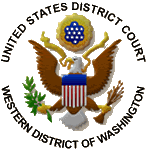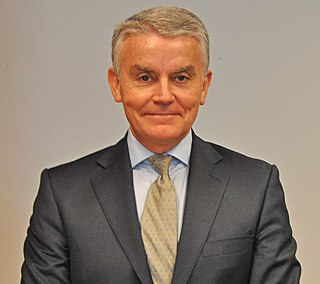
An original equipment manufacturer (OEM) is a company that produces parts and equipment that may be marketed by another company. However, the term is ambiguous, with several other common meanings: It sometimes means the maker of a system that includes other companies' subsystems, an end-product producer, an automotive part that is manufactured by the same company that produced the original part used in the automobile's assembly, or a value-added reseller.
A royalty payment is a payment made by one party to another that owns a particular asset, for the right to ongoing use of that asset. Royalties are typically agreed upon as a percentage of gross or net revenues derived from the use of an asset or a fixed price per unit sold of an item of such, but there are also other modes and metrics of compensation. A royalty interest is the right to collect a stream of future royalty payments.

The list price, also known as the manufacturer's suggested retail price (MSRP), or the recommended retail price (RRP), or the suggested retail price (SRP) of a product is the price at which its manufacturer notionally recommends that a retailer sell the product.
Product activation is a license validation procedure required by some proprietary software programs. Product activation prevents unlimited free use of copied or replicated software. Unactivated software refuses to fully function until it determines whether it is authorized to fully function. Activation allows the software to stop blocking its use. An activation can last "forever", or it can have a time limit, requiring a renewal or re-activation for continued use.
The first-sale doctrine is a legal concept that limits the rights of an intellectual property owner to control resale of products embodying its intellectual property. The doctrine enables the distribution chain of copyrighted products, library lending, giving, video rentals and secondary markets for copyrighted works. In trademark law, this same doctrine enables reselling of trademarked products after the trademark holder puts the products on the market. In the case of patented products, the doctrine allows resale of patented products without any control from the patent holder. The first sale doctrine does not apply to patented processes, which are instead governed by the patent exhaustion doctrine.
Software copyright is the application of copyright in law to machine-readable software. While many of the legal principles and policy debates concerning software copyright have close parallels in other domains of copyright law, there are a number of distinctive issues that arise with software. This article primarily focuses on topics particular to software.

A reseller is a company or individual (merchant) that purchases goods or services with the intention of selling them rather than consuming or using them. Individual resellers are often referred to as middle men. This is usually done for profit. One example can be found in the industry of telecommunications, where companies buy excess amounts of transmission capacity or call time from other carriers and resell it to smaller carriers. Resale can be seen in everyday life from yard sales to selling used cars.

Used goods, also known as secondhand goods, are any item of personal property offered for sale not as new, including metals in any form except coins that are legal tender, but excluding books, magazines, and postage stamps. Used goods may also be handed down, especially among family or close friends, as a hand-me-down.
Resale price maintenance (RPM) or, occasionally, retail price maintenance is the practice whereby a manufacturer and its distributors agree that the distributors will sell the manufacturer's product at certain prices, at or above a price floor or at or below a price ceiling. If a reseller refuses to maintain prices, either openly or covertly, the manufacturer may stop doing business with it. Resale price maintenance is illegal in many jurisdictions.
In software licensing, volume licensing is the practice of using one license to authorize software on a large number of computers and/or for a large number of users. Customers of such licensing schemes are typically business, governmental or educational institutions, with prices for volume licensing varying depending on the type, quantity and applicable subscription-term. For example, Microsoft software available through volume-licensing programs includes Microsoft Windows and Microsoft Office.

Microsoft Corp. v. Commission is a case brought by the European Commission of the European Union (EU) against Microsoft for abuse of its dominant position in the market. It started as a complaint from Sun Microsystems over Microsoft's licensing practices in 1993, and eventually resulted in the EU ordering Microsoft to divulge certain information about its server products and release a version of Microsoft Windows without Windows Media Player. The European Commission especially focused on the interoperability issue.

Digital goods or e-goods are intangible goods that exist in digital form. Examples are Wikipedia articles; digital media, such as e-books, downloadable music, internet radio, internet television and streaming media; fonts, logos, photos and graphics; digital subscriptions; online ads ; internet coupons; electronic tickets; electronically treated documentation in many different fields; downloadable software and mobile apps; cloud-based applications and online games; virtual goods used within the virtual economies of online games and communities; community access; workbooks; worksheets; planners; e-learning ; webinars, video tutorials, blog posts; cards; patterns; website themes and templates.
A Contributor License Agreement (CLA) defines the terms under which intellectual property has been contributed to a company/project, typically software under an open source license.
Microsoft has been involved in numerous high-profile legal matters that involved litigation over the history of the company, including cases against the United States, the European Union, and competitors.
The bundling of Microsoft Windows is the installation of Microsoft Windows in computers before their purchase. Microsoft encourages original equipment manufacturers (OEMs) of personal computers to include Windows licenses with their products, and agreements between Microsoft and OEMs have undergone antitrust scrutiny. Users opposed to the bundling of Microsoft Windows, including Linux users, have sought refunds for Windows licenses, arguing that the Windows end-user license agreement entitles them to return unused Windows licenses for a cash refund. Although some customers have successfully obtained payments, others have been less successful.

Vernor v. Autodesk, Inc. was a case in the United States District Court for the Western District of Washington regarding the applicability of the first-sale doctrine to software sold under the terms of so-called "shrinkwrap licensing." The court held that when the transfer of software to the purchaser materially resembled a sale it was, in fact, a "sale with restrictions on use" giving rise to a right to resell the copy under the first-sale doctrine. As such, Autodesk could not pursue an action for copyright infringement against Vernor, who sought to resell used versions of its software on eBay. The decision was appealed to the United States Court of Appeals for the Ninth Circuit, which issued a decision on September 10, 2010, reversing the first-sale doctrine ruling and remanding for further proceedings on the misuse of copyright claim. The Ninth Circuit's decision asserted that its ruling was compelled by Ninth Circuit precedent, but observed that the policy considerations involved in the case might affect motion pictures and libraries as well as sales of used software.

The Court of Justice of the European Union (CJEU) is the judicial branch of the European Union (EU). Seated in the Kirchberg quarter of Luxembourg City, Luxembourg, this EU institution consists of two separate courts: the Court of Justice and the General Court. From 2005 to 2016, it also contained the Civil Service Tribunal. It has a sui generis court system, meaning 'of its own kind', and is a supranational institution.
UsedSoft is a used-software commerce company which instituted a business-to-business (B2B) market for used computer programs. The company is headquartered in Zug, Switzerland.

The lawsuit Microsoft v. Internal Revenue Service, No. 1:14-cv-01982, was filed in U.S. District Court, District of Columbia when Microsoft sued the Internal Revenue Service requesting the IRS comply with a Freedom of Information Act request. According to Microsoft the IRS "unlawfully withheld" information on a contract between law firm Quinn Emanuel Urquhart & Sullivan and the IRS. The IRS uses the services of the law firm to assess transfer pricing financial audits of Microsoft.

Sir Simon Picken is a British High Court judge.









